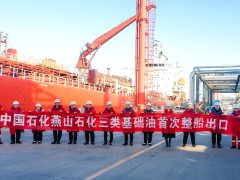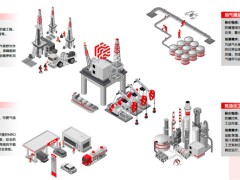据电力新闻2021年5月7日伦敦报道,全球最大最有经验的水电解装置生产商Nel Hydrogen公司首席执行官乔恩·安德烈·洛克日前在接受媒体记者采访时表示,由于绿氢的生产成本迅速下降,石油公司推动的蓝氢生产在短期内将并不经济。
Nel Hydrogen公司已经制定了一份路线图,计划到2025年前实现绿氢(通过电解水生产)的商业生产,成本低于每公斤1.5美元,使其与化石燃料生产的灰氢具有竞争力,并超过蓝氢(通过蒸汽甲烷重整和碳捕获和储存生产)。
洛克在挪威著名能源研究和商业情报公司雷斯塔能源公司(Rystad)日前举行的一个在线能源转型活动上说:“说到蓝氢,从成本的角度来看,我真的不认为蓝氢有机会。”
他说:“我认为这在很大程度上是大型石油公司推动的,因为他们没有选择,他们害怕失去权力和垄断地位。”“但我认为,有了绿色可再生氢,成本下降的速度将比分析师们认为的快得多。”
洛克说:“假设电价是每兆瓦时20美元,蓝氢2025年的目标是每公斤1.5美元。这已经可以和化石竞争了。如果再加上捕获二氧化碳所需的每公斤1美元加成本,蓝氢就没有竞争力。”
分散的可再生能源发电
绿氢的生产成本将取决于可再生电力的价格,但洛克认为分散的可再生能源发电将改变游戏规则。
洛克说:“我认为更相关的问题不是电价,而是发电的成本。成本和价格之间有着巨大的差别。”
“有时这是因为市场不完善。有时是因为你需要连接到电网。所以你会在越来越多的地方找到离网解决方案。脱离电网,或者使用微型电网,使你独立于那些控制电网、控制电力、控制能源的寡头。”
5月5日,市场评估了荷兰通过碱性电解生产氢气的成本(包括资本支出),为3.94欧元/公斤(4.75美元/公斤)。PEM电解产量被评估为4.99欧元/公斤,而蒸汽甲烷重整(包括碳、CCS和资本支出)的蓝氢产量被评估为2.11欧元/公斤。
碳排放税是受欢迎的,但洛克说,“从根本上说,我们的商业论证不要依赖任何形式的支持或补贴来帮助这一行动。”“我们必须能够凭借自身优势与化石燃料竞争。”
他表示,碳税、资本支出和运营支出支持都将有助于启动该行业,加速规模化生产。
电池增压
锂离子电池生产商弗雷公司首席执行官汤姆·詹森对此表示赞同。他在同一场活动中表示:“你不能依靠来自政府的激励措施来建立一家企业。”
詹森说,“但政府的激励措施肯定会有助于加速能源转型,因此,如果政府希望加速这一转型进程,他们应该实施非常重的二氧化碳税。如果你想让事情加速发展,那就把你的钱花在你说的事情上。”
詹森指出,欧洲的高碳价格正在转化为对电池生产商的激励。
5月5日,ICE欧洲期货交易所12月交割的欧盟碳排放限额期货合约报收于49.45欧元/吨,5月4日首次超过50欧元/吨。
詹森说:“如果你有一个无二氧化碳的电池,相对于目前的全球平均水平,这能够意味着大约5%的成本效益。”
李峻 编译自 电力新闻
原文如下:
Oil companies will struggle to make blue hydrogen economical: Nel CEO
Blue hydrogen production, promoted by oil companies, will not be economical beyond the short term as green hydrogen costs fall rapidly, electrolyzer producer Nel Hydrogen's CEO, Jon Andre Lokke, said May 6.
Nel Hydrogen has outlined a road map to reach commercial production of green hydrogen -- produced by electrolyzing water -- at costs of below $1.5/kg by 2025, making it competitive with fossil fuel-derived "grey" hydrogen, and outcompeting blue hydrogen, produced via steam methane reforming with carbon capture and storage.
"When it comes to blue, I really don't think from a cost perspective that blue has a chance, to be honest," Lokke said at an online Rystad energy transition event.
"I think it is pushed very much by the big oil companies because they don't have a choice, and they're afraid of losing power and the oligopoly position," he said. "But I think with green renewable hydrogen, the cost is going to go down much faster than the analysts think. Look at what happened in wind."
The 2025 target of $1.5/kg assumes electricity prices of $20/MWh.
"That's already competitive with fossil," Lokke said. "If I add then the $1/kg-plus in cost which I need to capture the CO2, I'm not going to be competitive. I'm already out."
Decentralized renewable generation
Green hydrogen production costs will depend on the price of renewable electricity, but Lokke sees decentralized renewable power generation as a game-changer.
"I think the more relevant question is not the price of electricity, but the cost of electricity," he said. "There is a huge difference between the cost and the price.
"Sometimes that's due to an imperfect market. Sometimes it's because you need to connect to the grid. So you will find off-grid solutions in more and more locations. Disconnected from the grid, or using mini-grids, making you independent of the oligopolies controlling the grids, controlling the power, controlling the energy."
It is assessed the cost of producing hydrogen via alkaline electrolysis in the Netherlands (including capex) at Eur3.94/kg ($4.75/kg) May 5. PEM electrolysis production was assessed at Eur4.99/kg, while blue hydrogen production by steam methane reforming (including carbon, CCS and capex) was Eur2.11/kg.
A carbon tax was welcome, but "fundamentally, our business case does not rely on any form of support or subsidies to help this fly," Lokke said. "We have to be able to compete with fossil fuels on our own merit."
A carbon tax, capex and operational expenditure support would all help kick-start the industry, accelerating production at scale, he said.
Battery boost
The CEO of lithium-ion battery producer Freyr, Tom Jensen, agreed.
"You cannot build a business relying on incentives from the government," he said at the same event.
"But they will definitely help in accelerating the energy transition," Jensen said. "So if governments want that to be accelerated, they should implement very heavy CO2 taxes. If you want something to be accelerated, put your money where your mouth is."
Jensen noted that high carbon prices in Europe were translating into incentives for battery cell producers.
EU carbon allowance futures contracts for December 2021 delivery on the ICE Futures Europe exchange closed at Eur49.45/mt May 5, having risen above Eur50/mt for the first time May 4.
"It can mean around a 5% cost benefit if you actually have a battery that is CO2-free, relative to what the global average is today," Jensen said.
免责声明:本网转载自其它媒体的文章,目的在于弘扬石化精神,传递更多石化信息,并不代表本网赞同其观点和对其真实性负责,在此我们谨向原作者和原媒体致以敬意。如果您认为本站文章侵犯了您的版权,请与我们联系,我们将第一时间删除。







